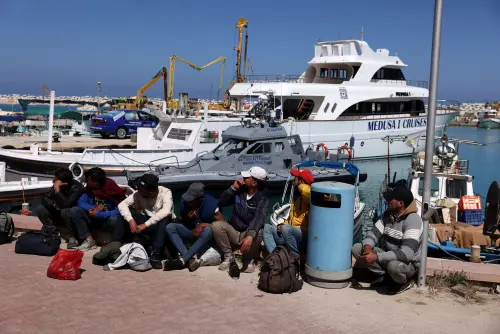First-time applications for asylum in European Union countries fell by 13% last year, marking the first decline since 2020, according to data from Eurostat. The total number of first-time asylum requests from non-EU citizens across the 27 member states was 912,000, down from over 1 million in 2023.
Syrians made up the largest share of applicants, as they have since 2013, representing 16% of the requests last year. Venezuela and Afghanistan followed, with each country accounting for 8% of the applications.
The data revealed a decrease in the number of detected irregular entries to the EU. Andrew Geddes, Director of the Migration Policy Centre at the European University Institute, noted that in 2024, the number of migrants entering the EU through irregular routes dropped by 38%, reaching the lowest level since 2021. This suggests that EU efforts to regulate entry are having some effect.
However, Geddes also pointed out the "hidden side" of this trend, indicating that more migrants are finding themselves in North Africa and the Middle East, where there are concerns about protection standards and human rights abuses.
Applications from Venezuela surpassed those from Afghanistan, reflecting the immense difficulties Afghans face in fleeing their country. Catherine Woollard, Director of the European Council on Refugees and Exiles, noted that nearly 148,000 first-time applications came from Syria in 2024, representing a 19.2% decrease from the previous year. She suggested that numbers from Syria may decline further if stability is achieved following the transition post-Bashar al-Assad, although it is too early to see any effects in the 2024 figures.
More than three-quarters of total applications for international protection in EU countries were submitted to Germany, Spain, Italy, France, and Greece. This uneven distribution, with 82% of first applications concentrated in just five countries, poses ongoing challenges, as some nations continue to take minimal action despite vocalizing their positions on the issue.
